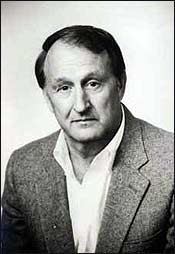
Double Bind
Faculty ignores ecological intelligence at our peril
By Chet Bowers
An open letter to the president of the UO: I appreciate the clarity with which you have summarized the financial barriers to higher education in Oregon. There is, however, another barrier that needs to be recognized. Your leadership in addressing it will be essential if the university is to avoid the double bind that Albert Einstein pointed to when he said that we cannot rely upon the same mindset that created the problem to fix it. This barrier is the current lack of understanding on the part of many faculty of the cultural roots of the ecological crisis, and their responsibility for addressing it.
 |
Many members of the science faculty recognize the rate and scale of environmental changes now threatening the basis of everyday life as we know it. Unfortunately, few science faculty understand the cultural roots of the ecological crisis; and the many faculty who are spread across departments on the campus also fail to understand the deep cultural sources of the double bind that Einstein warns about.
I sat in on a discussion by the faculty about whether the humanities have relevance in addressing the challenges of today’s world, and found that in the hour and a half of self-praise only one faculty member mentioned the ecological crisis — more as a matter of personal concern than as something that the faculty should consider. My concern about the degree of denial on the part of the majority of the faculty goes deeper and cannot be alleviated by more faculty using “sustainability” in their course descriptions.
The basic problem is that most faculty take for granted the same deep cultural assumptions that gave conceptual direction and moral legitimacy to the industrial/ consumer-oriented/ individually centered culture that has now entered the digital phase of globalization. That is, they take for granted that the individual is the basic social unit and source of intelligence, that change leads to progress, that print is a more reliable source of cultural storage and renewal than found in oral cultures, that this is a human-centered world, that mechanism is the most powerful explanatory model for understanding life forming processes (the field of cognitive science being a prime example), and that language is a conduit in a sender/receiver process of communication.
These may appear as sweeping generalizations, but they can be supported by observing the response most faculty give if asked about the nature of ecological intelligence, how the process of linguistic colonization of the present by the past occurs in their classes (the process whereby the analogs settled upon in the past when there was no awareness of environmental limits continue to frame the meaning of much of the vocabulary they reinforce in their classes), about the ecological and community building importance of the local cultural commons, and what students should learn about the different forms of enclosure of the cultural and environmental commons.
When I mention ecological intelligence (which many oral cultures rely upon), the need to introduce students to the local cultural commons and the forces of enclosure, and how words carry forward the misconceptions and silences of earlier eras, I either have encountered a blank stare or an effort to change the subject.
These observations do not apply to all faculty at the UO as there is a small number who have read widely the more important environmental/ cultural thinkers, and are deeply committed to introducing students to on-the-ground sustainable learning experiences. However, many faculty continue to pass on in their courses the deep cultural assumptions that are at the root of the ecological crisis, and to justify teaching courses that reflect their personal interests rather than what will help prepare students for living less consumer and thus environmentally destructive lives.
Given this current misuse of academic freedom, your leadership is needed if faculty are to begin discussing the knowledge and skills students will need in a world that is undergoing radical change.
I know that references are continually being made to the university being among the best in the country, which may contribute to the failure to examine whether students graduate with the knowledge and skills necessary to avoid the double bind that Einstein warns about.
Chet Bowers, the author of 21 books, is semi-retired from the UO and has been an invited speaker at 68 universities here and abroad. His online books and articles may be accessed at www.cabowers.net